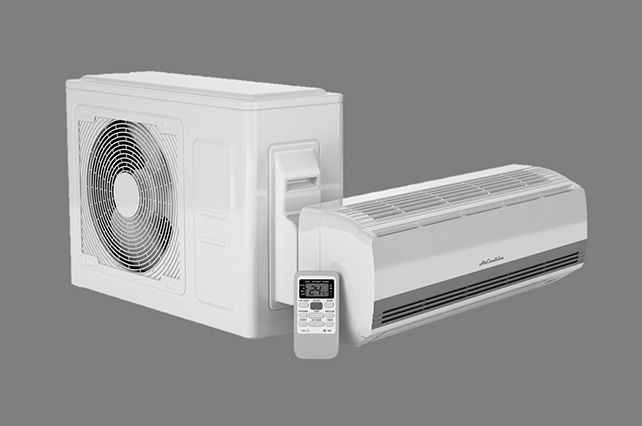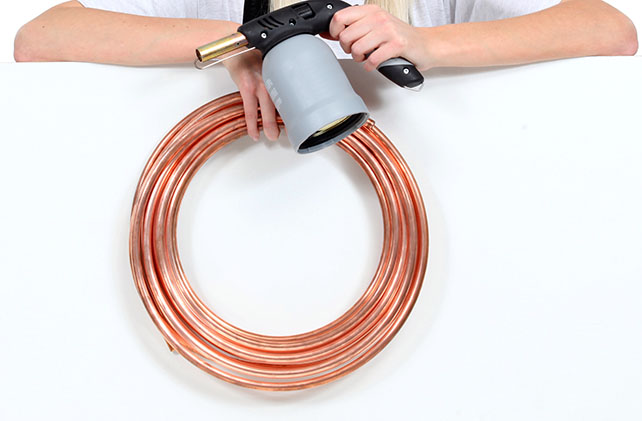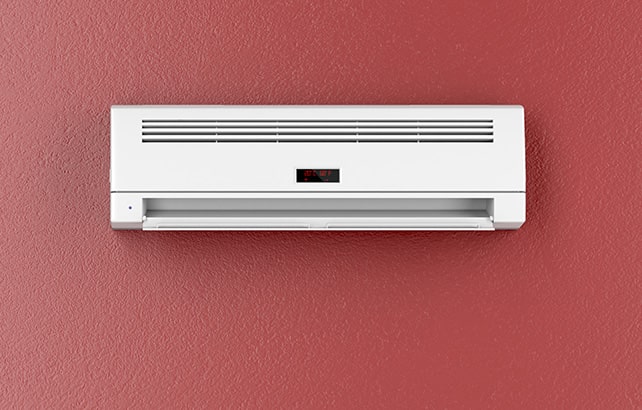Inverter AC vs Normal AC: Which One is Best for your Home?
If you are about to purchase a new air conditioner, Sure you might be confused looking at all the features! Don’t worry we are here to help you. In this article, we are going to compare inverter AC vs normal AC models to help you make the best choice.
With thousands of AC models available on the market, it can get quite difficult to find the best value for your money. In fact, if you do not have a lot of experience buying air conditioners, you might not even know about all the important terms and factors that should be considered.
That is why we are going to guide you through the process and explain the difference between the so-called inverter AC vs non inverter AC. There is a crucial difference between these two AC models, as inverter AC technology is far more advanced and more convenient. With that said, let’s get into detail with these terms and their meaning so you can get ready for the hot days as soon as possible.

What Exactly Inverter Technology Means and How does it Work?
Inverter technology is designed to increase the energy efficiency of the air conditioner through advanced features and technology. Compared to a normal air conditioner, an inverter AC can save up to 30-50% of energy per hour. The power consumption rates of an AC depend on air conditioner capacity and its ratio to the size of the room. For example, if the room is too big for a 1 ton AC, the air conditioner will take a longer time to cool the space and thus use more energy.
Even if the room is too small for the AC, the air conditioner would still be using more energy than necessary. With that in mind, it can be difficult to choose the right AC capacity for your space to navigate through the consumption rates. However, the inverter AC technology changes the game by allowing the user to customize the capacity of the air conditioner. In other words, this inverter is used to adjust the temperature and capacity of the running appliance according to the environment.
The compressor inside an inverter AC is always running. However, what makes it different than a normal air conditioner is that its power consumption rates are always adjusted to the temperature of the incoming air and the level in the thermostat. Therefore, an inverter AC allows you to control the power consumption and thus save money on your energy bill. Developed in Japan, this technology is also used in refrigerators to enhance efficiency and reduce power consumption rates. When it comes to inverter AC vs non inverter AC comparison, it is clear that the inverter technology takes the win and here’s why!
Inverter AC vs Normal AC Differences- Which One is Best and Why?
There has been a long debate about which type of AC is better – inverter AC vs normal AC. We are going to clear the confusion by comparing the two air conditioner technologies based on price, cooling time, compression, power consumption, room size efficiency, noise, and maintenance. Before we jump into details, it is safe to say that the invert air conditioner technology is the more beneficial option for multiple reasons. Besides lowering the electricity costs, an inverter AC can cool a room faster, as well as reduce temperature fluctuations.
Price
Given that inverter air conditioners feature the latest cooling technology, they are more expensive than normal AC units. After all, an inverter AC offers more benefits at lower power consumption rates. However, even though the initial price of inverter air conditioners is higher, keep in mind that these AC units will save you money in the long run.
If you think of it as a long term purchase, inverter air conditioners are a more logical solution from the financial point of view because they will save you money in the future. Besides, with a higher price comes high quality, which is always the best path to choose.
Bottom line: Even though inverter air conditioners are usually more expensive, they will save you money in the long run and provide far more quality and value.
Cooling time
An inverter AC can cool the space much faster than a normal AC because of its advanced compression technology. Cooling is an automated process within an inverter AC, which makes it not only faster but also a lot more eco-friendly.
Besides, inverter air conditioners are more efficient at cooling because they won’t over-cool the space like most normal AC units. By controlling the capacity of the air conditioner, the compressor ensures efficient and proper cooling in no time.
Bottom line: Inverter air conditioners are more efficient at cooling the space faster, as well as maintaining the temperature and avoiding frequent fluctuations.
Compressor
Namely, in a normal, non inverter air conditioner unit, the compressor starts running and then stops when the desired temperature is achieved. Once the compressor stops running, the temperature starts to rise again, then it runs again and so on.
However, in an inverter AC, the compressor never stops running. Instead, it is constantly being adjusted to the temperature in the room in order to achieve efficient cooling without using too much energy.
Bottom line: One of the main inverter AC and normal AC differences is the compression technology. An inverter AC has a far more convenient and efficient compression solution.
Power Consumption in Inveter and Non Inverter AC’s and Money saving
We have already mentioned that inverter air conditioner units consume less power than normal ones, even though their compressor is always running. However, the inverter unit adjusts its power consumption based on the temperature of the space and the cooling conditions.
Instead of shutting off the compressor and powering it again every now and then, as a normal AC unit does, an inverter air conditioner keeps the compressor running at lower rates to maintain the cool temperature without spending too much energy.
Bottom line: An inverter AC might cost more initially, but it saves more power and costs less in terms of monthly electricity bills. Therefore, between inverter AC vs normal AC power consumption rates, the inverter technology wins.
Size of your Room
The size of the room plays an important role when choosing an air conditioner unit. However, you are more likely to choose the wrong unit if you settle for a normal AC.
Since regular air conditioners cannot control and adjust their capacity, they can either over-cool or under-cool the space depending on size. However, an inverter AC can adjust its cooling capacity to the size of the room and thus ensure more efficient cooling at lower costs.
Bottom line: While you have to be careful when selecting a normal AC for your room size, you can choose any inverter air conditioner because its capacity will be adjusted to the environment.
Noise Levels
Once again, the inverter conditioners take the win because they operate more smoothly with less noise. Since a normal AC stops and starts the compressor multiple times during cooling, it tends to make more noise.
An inverter AC, on the other hand, keeps the compressor running at low noise levels without interruptions, which ensures smoother and quieter operation.
Bottom line: Inverter air conditioners are a lot more silent compared to normal ones. You won’t even notice them running after a while.
Maintenance
Last but not least, we must compare inverter AC vs normal AC maintenance. This is where normal air conditioners make a comeback because they are easier and cheaper to maintain. An inverter AC contains two PCB units (Printed Circuit Board), whereas a normal AC contains only one and thus, it is easier to repair.
Besides, the PCBs inside inverter ACs are more advanced and more expensive to repair or replace. While a replacement for a normal PCB cost between 2 000 to 5 000 Indian rupees, the replacement of an inverter PCB will cost you 7 000 to 10 000 Indian rupees.
Bottom line: Inverter air conditioners are more difficult to maintain and also more expensive to repair. However, they do provide more value and quality, which is important to consider when making a purchase.
When can I Prefer Normal AC?
If you don’t use the AC a lot and it only runs for a few hours, then you don’t need an inverter one. Inverter air conditioners are designed for long hours of usage and, if you do not intend to use it so frequently for long periods of time, you can simply save some money and purchase a normal AC.
An inverter AC is not always necessary if you have a small room under 200 square feet. Inverter air conditioners are an expensive investment for large spaces so you won’t need one if you are not planning to run it hours in a big room.
What about Dual Inverter AC and Triple Inverter Ac? Are they Better than Inverter ACs?
Dual and triple inverter ACs are more advanced designs of inverter air conditioner technology. Hence, they tend to be more efficient but also more expensive. Dual inverters are better than regular ones because they allow faster and more precise cooling. Dual inverters also come with more powerful motors to ensure more efficiency at cooling and power consumption.
Dual inverters include two rotary compressors placed at a 180 angle for more stable and far more quiet operation. Therefore, dual or twin inverters can achieve far more efficiency with lower noise, which is a feature worth the extra money. Triple inverters, on the other hand, are another step above the technology. With triple inverters, an air conditioner can achieve faster cooling by up to 67%.
Moreover, triple air conditioner inverters save nearly 70% more energy compared to regular inverters. Therefore, if you want to get the best value for your money and save as much energy as possible, triple inverters are a good way to go. However, keep in mind that AC units with triple inverters are the priciest option. So, you can settle for dual or single inverter technology if you want to save some budget.
Make sure to think of the long term benefits of faster cooling at lower energy rates, especially if you use the air conditioner frequently for longer periods of time. Don’t forget that even if you choose a single inverter air conditioner, it is still better than a normal AC unit.
Are there any Window Inverter AC Models?
A split air conditioner comes in two units (indoor and outdoor), whereas a window AC unit only has one part. While split AC units are usually more powerful and far more silent during operation, window AC models can still come in handy if you are looking for a single piece unit. Here are two window air conditioner models with inverter technology.
1. Voltas 1.5 Ton 5 Star Inverter Window AC
The Voltas 1.5 ton capacity window air conditioner is rated five stars for energy efficiency and low power consumption. This unit is very economical, as it adjusts power depending on the heat load from inside the room. It is easy to install and it fits medium sized rooms measuring between 110 square feet to 150 square feet.
2. LG 1.5 Ton 5 Star Window Inverter AC
This LG window inverter AC also features a 1.5 ton capacity. However, it packs more power thanks to the LG Smart ThinQ technology and it is capable of cooling rooms of up to 180 square feet. This AC is highly power efficient and it has a five star rating for energy consumption.
Summary
To conclude, inverter AC vs normal AC differences include different power consumption, maintenance, and overall cooling results. Inverter technology proves to be more efficient in each of these fields. However, it is more expensive to purchase and replace it in case of any necessary repairs.
For those who want to go a step further, there are dual inverter and triple inverter type air conditioners on the market, which provide even more cooling efficiency and power saving features. Overall, inverter technology is the best solution for large spaces where the AC needs to run consistently for longer periods of time.





